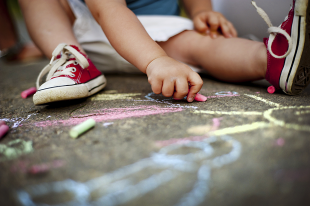
This evening's Education in the Media blog focusses on the publication of evidence papers by The Scientific Advisory Group for Emergencies (SAGE) about the plans for a phased return to school from 1 June at the earliest , and a statement from the Education Secretary in response.
SAGE evidence papers
Today, Friday 22 May, The Scientific Advisory Group for Emergencies (SAGE) has published evidence papers regarding the phased return to schools for some year groups from the 1 June at the earliest. The Secretary of State for Education has issued the following statement in response.
Education Secretary Gavin Williamson said:
The papers published by SAGE today show that the phased, cautious return of a limited number of pupils to classrooms has been a carefully considered decision based on the best scientific and medical advice.
My department continues to engage with the school, college and nursery sectors and I am enormously grateful for all the planning and preparation they are doing, alongside local authorities and academy trusts.
The welfare of children remains at the very heart of everything we are doing because being able to be back in school will benefit not just their education but also their wellbeing.
Further information
- The evidence published today shows we looked at a range of options in drawing up this phased approach to reopening schools, which is in line with the Government’s overall ‘roadmap’.
- As in other countries across Europe, the first phases of the wider opening of schools will prioritise younger children. Advice from SAGE shows there is a lower overall risk from opening schools and nurseries to younger children, and that they are less likely to become unwell if infected with coronavirus compared to adults.
- This cautious, phased approach for allowing a limited number of pupils back into classrooms has been, and will continue to be, informed by the best possible scientific and medical advice.
- Paper Modelling and behavioural science responses to scenarios for relaxing school closures from the Interdisciplinary Task and Finish Group on the Role of Children in Transmission, shows that the fewer children attending educational settings, the lower the impact on R, and that the relative impact on R is lower for opening settings for earlier year groups.
- The models consistently show that resuming early years provision has a smaller relative impact on R than resuming provision for primary schools, which in turn has a smaller relative impact than resuming secondary schooling.
- On Friday 15 May we published an overview of the scientific advice used to inform decisions on the planed return to school for some year groups from 1 June at the earliest - https://www.gov.uk/government/publications/overview-of-scientific-information-on-coronavirus-covid-19